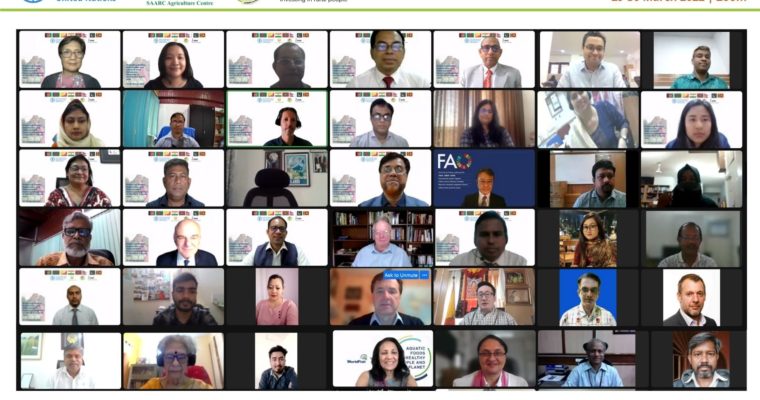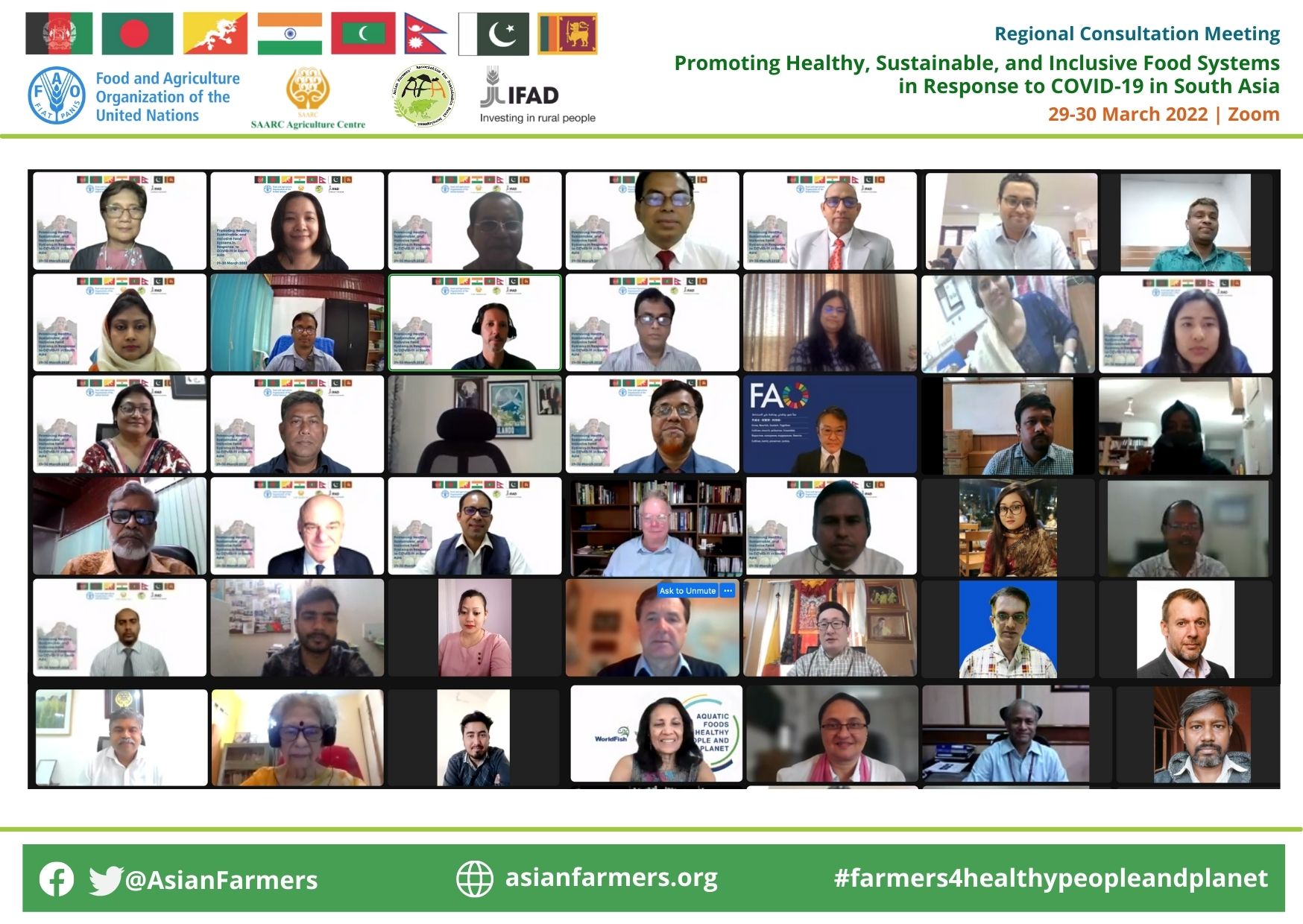Better food systems are critical to building a future with improved health, equality, and peace, with rich biodiversity and ecosystems, and with resilient and empowered people. Therefore, there must be a critical shift from a food security focus to food systems thinking: thinking about food, people, and the planet, that requires multi-level approaches with multi-stakeholders. Non-state actors, especially family farming organizations and their cooperatives, needed to be in equal partnership in the implementation of commitments to sustainable food systems, especially in the area of agroecology and climate-resilient agriculture.
These are key insights of participants who attended the regional consultation workshop entitled: Promoting Healthy, Sustainable, Inclusive Food Systems in South Asia in Response to Covid-19 Situation in South Asia”, held virtually on Zoom on 29-30 March 2022. The 2-day event was attended by a total of 84 participants (34 of whom are women) from seven (7) SAARC Member States (Bangladesh, Bhutan, India, Maldives, Nepal, Pakistan, and Sri Lanka), as well as from family farmers organizations, cooperatives, NGOs, intergovernmental organizations and research institutions.
The workshop aimed, among others, to formulate recommendations that will support the food transformation into healthier, more sustainable, and inclusive food systems in the South Asia region. Eighteen (18 ) presentations were given, focusing on the commitments. to sustainable food systems of Member States, FOs, cooperatives, and research institutions as presented during the official Food System Summit processes, as well as successful experiences in promoting sustainable food systems. Two introductory presentations shed light on the status of food systems in SouthAsia as well as the status of implementation. the commitments made during the Food Systems Summit.
A Joint Communique highlighting the key discussions during this workshop, including the agreed action points at the regional level will be issued in a month’s time.
The regional consultation workshop was co-organized by the UN Food and Agricultural Organization (FAO), SAARC Agricultural Center (SAC), International Fund for Agricultural Development (IFAD), and the Asian Farmers Association for Sustainable Rural Development (AFA).





Comments are closed